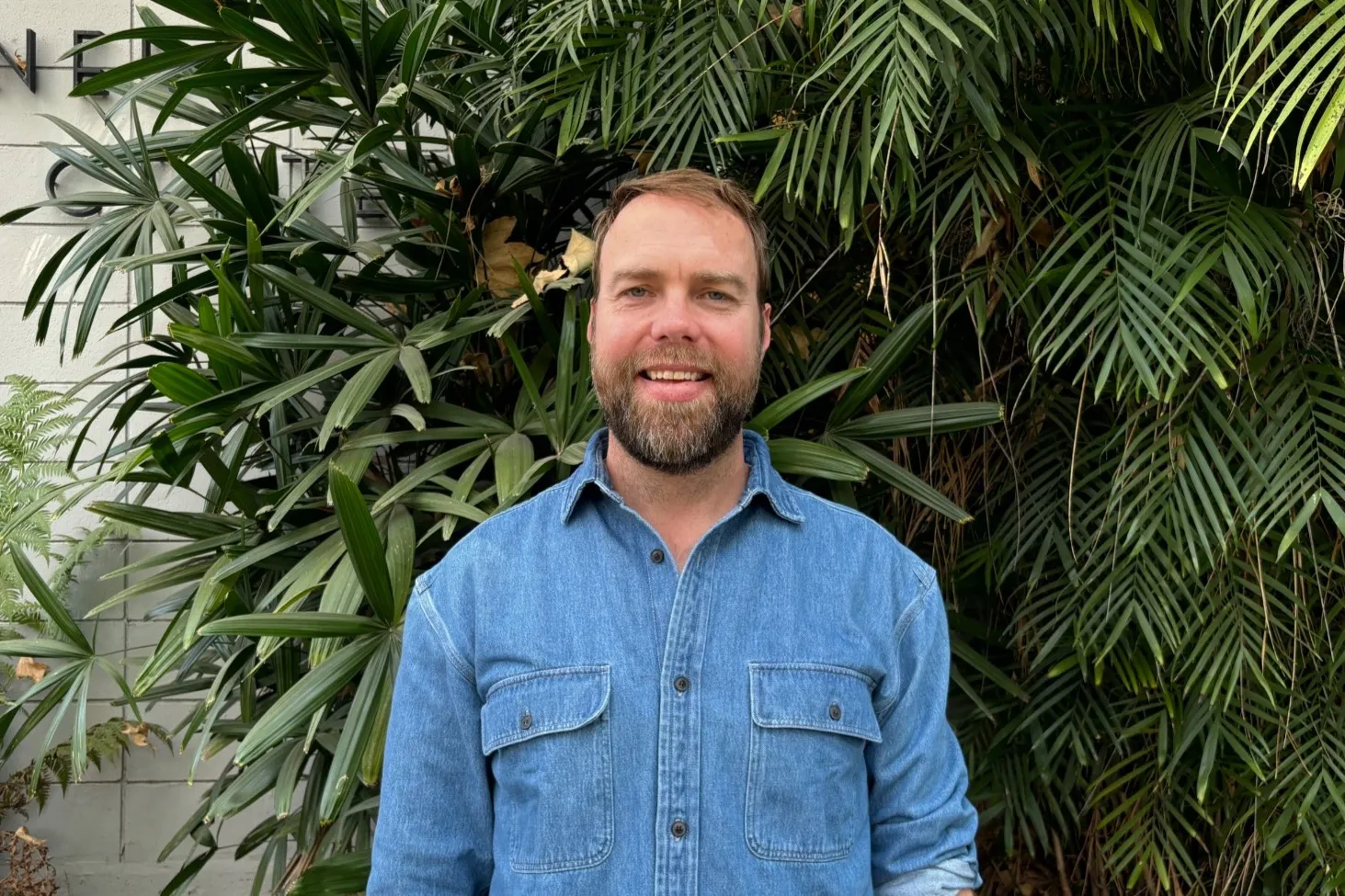- Home
- >
- APU Articles
- >
- News Article
Faculty Feature: William Whitney, PhD, Guides Student to Create Pathways For Healing
November 29, 2024 | Category Behavioral Sciences | Written By Saundri Luippold

Healing is not a linear process. Drawing upon Jesus’ instruction to care for one another, William Whitney, PhD, incorporates his personal experience with healing to hospitably provide support for those seeking to improve their mental health. As a psychology professor at Azusa Pacific University, Whitney guides students as they navigate their faith and vocation in counseling.
Originally from Fort Worth, Texas, Whitney intended to pursue a theological career path. After graduating with a bachelor’s degree, he went to seminary, then earned a master’s degree at Oxford. Through work in the church and academic settings, Whitney recognized the importance of building awareness about mental health. “Psychology caught my attention because I always wanted to help people find pathways to flourish,” he said. Studying at Oxford and gaining exposure to disciplines related to theology solidified Whitney’s calling.
I see a significant overlap between faith and psychology, because God brings restoration to those in need. Helping people thrive taps into my Christian values of extending hope and love and working for justice.
In 2014, when Whitney was earning his PhD at Fuller Theological Seminary, he started working as an adjunct professor at APU. He didn’t envision becoming a full time faculty member, but when the opportunity arose to devote his career to teaching students about the integration between faith and psychology, he knew God was calling him to live out his purpose at APU.
Whitney loves the curiosity and enthusiasm students at APU bring to every class session. He enjoys deepening relationships with students and being there for them during such formative years. “I view education as a holistic component of developing a person intellectually, emotionally, and spiritually,” he said, “so my hope is that students leave my classes with a greater sense of themselves and how they can best contribute to the world around them.”
While Whitney is dedicated to implementing effective practices to help students grow as scholars, he seeks to know them as individuals and, like any good therapist, meet them where they’re at. Whitney often runs into students outside on Cougar Walk, asks them how they’re doing, and expresses an interest in the opportunities they’re finding in and out of the classroom.
From conversations about faith and psychology, to publishing scholarly work in the field, Whitney continues to combine his interests in theology and mental health to discover more about God and human nature. He is the co-author of two books: Theology for Psychology and Counseling: An Invitation to Holistic Christian Practice and The Integration Journey: A Student’s Guide to Faith, Culture, and Psychology. “My writing stems from my experiences at APU, and I hope readers deepen their understanding of faith as a cultural component of identity,” he said. “I also write with a Christian framework to orient readers to love God and others and work for justice in the field of psychology.”
Whitney’s excellence in psychology derives from the meaning it offers him to help those struggling because he once walked through his own mental health struggles. “I have a personal connection with psychology because when I went through anxiety and depression in college I leaned on therapists and mentors who helped me on a journey toward healing,” he said. “I want to be a part of creating pathways for healing that invite God into the space for bettering wellbeing.”